Reducing waste: one coffee at a time
By: Stephanie Wicken
Week 1
Finalising the project plan
Having received the fantastic news about winning one of the six fellowships, we were put straight to work attending a group workshop to finalise our project plans and meet the other winners. The project that I am working on is ‘Reducing Waster: One Coffee at a Time’.
The main concept behind the project is reducing waste through the delivery of a pilot scheme that explores the concept of a ‘green tax’ on disposable products. The focus of this scheme is centred on hot beverages and the use of disposable paper cups which involves adding a charge of between 10p and 35p to the regular price of the beverage which will be waivered if the customer provides their own beverage container and does not use one of the disposable cups. Similar to the recent bag tax, this works to encourage the customer to bring their own drinks containers, thus reducing the number of disposable cups being thrown away.
I am hoping through the course of the next 8 weeks to perform a case study at the University of Greenwich to see the possible benefits this could bring to the University and the local community as a whole.
Week 2
Initial Discussions on Campus
This week was the first chance I have had to really get the project off the ground, by meeting with the catering company’s manager at the University of Greenwich campus to get some management data that will be the basis of my case study.
It was very encouraging to see his enthusiasm and compliance with the project, and the promise of management data within the week. We spoke about the current efforts that are being undertaken by the catering company whom recently achieved a number of awards relating to sustainability. Unbeknown to myself (and all of the customers I’ve spoken to since the meeting) the catering company already runs a similar scheme whereby if the customer uses one of the china mugs provided by the university they receive a 10p discount on the cost of coffee. As their current schemes are obviously not well marketed, towards the end of the project I may look at potential marketing initiatives that could be used in conjunction to my own scheme, or the one currently in place.
Next week I am hoping to begin the data analysis and get a much better idea of the potential in the project and start to put together some presentation tools for my findings.
Week 3
Discussions on marketing plans
As unfortunately the data from the catering company had not yet been received, this week I started looking into the marketing of the scheme and what successes and failures are present in existing marketing by the catering company.
I organised a meeting with a colleague of mine who works in global pharmaceutical marketing for some guidance on how to present the project to the public given the failures in the marketing for the current scheme. She advised looking at the university wide emails and visual media around the campus as a means of playing to students emotions and selling the cause as opposed to the financial incentive. As a result I have looked more into the environmental costs of waste and how that affects people in their day to day lives.
Given the missing sales data at present, I chased up the campus manager from the catering company and he confirmed that the report was in process, and should be with me early week 4, so here’s to hoping the analysis can start in week 4/5.
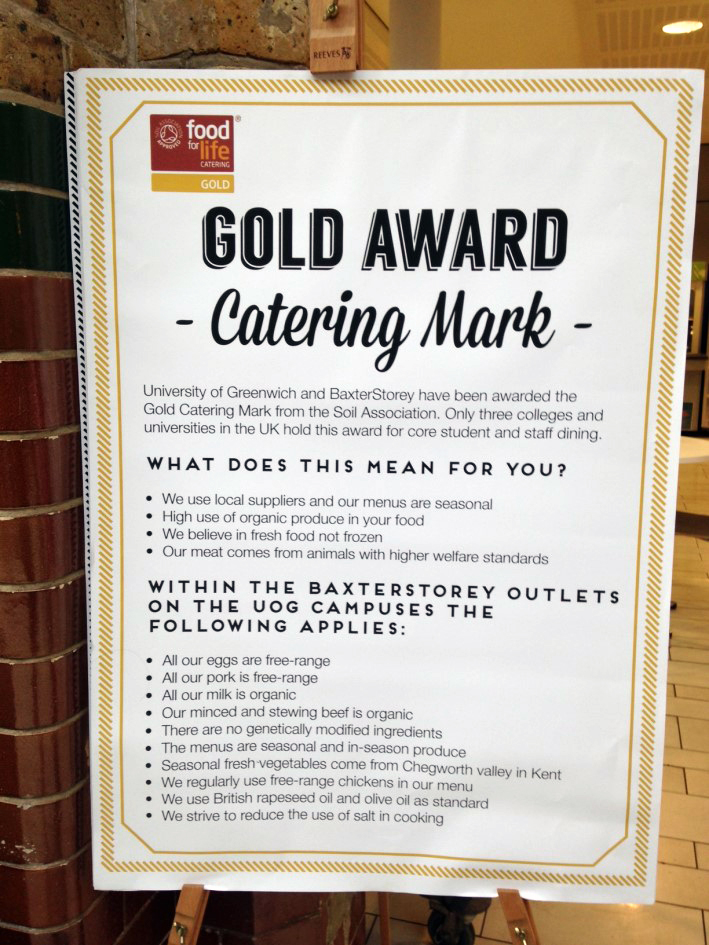
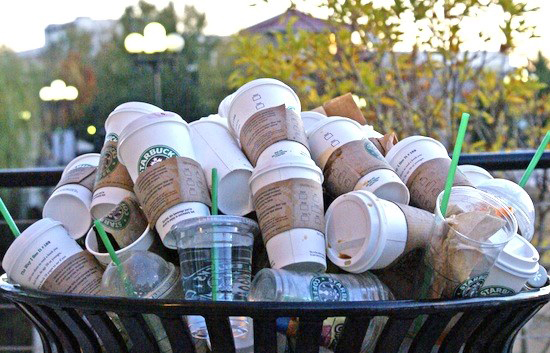
Week 4
Data analysis and marketing schemes
This week I received the data from the catering company which gave me the opportunity to get into the data analysis and put together some potential figures.
Initial analysis showed the green tax could bring in an additional sum of between £6000 and £12000 per annum which was very encouraging as this helps bring the commercial incentive for the catering company to comply were the scheme to be implemented in future.
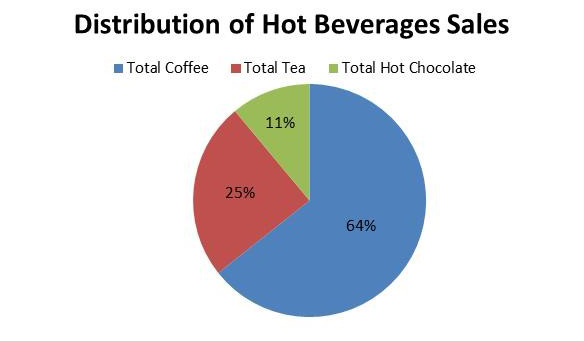
An inital look into the 'carbon cost' per unit of the paper cup over 500 uses showed the ceramic cup to produce up to 28 times less carbon dioxide and the reusable thermos flasks to produde almost 35 times less. Incredbly after just 9 uses the thermos flask repays the carbon costs of a disposable cup, which shows the incredible potential energy savings with reausable containers.
Given the very positive data, I am looking to set up a marketing/awareness campaign for the scheme over the next three weeks that will be presented to the universities of Medway and the catering company with the hope of future use.
.jpg)
Week 5
Marketing schemes and Questionnaires
This was another positive week with some key progress in terms of marketing strategies. I have put together a customer survey to gather some more information on the consumers, and am in the process of procuring the prizes for the winners of the prize draw that comes as part of completing the customer survey. The stall will be in Pilkington Building on 15th & 16th December and the prizes are:
First prize:
An Amazon Fire tablet, a university branded thermos mug plus 30 free hot drinks tokens
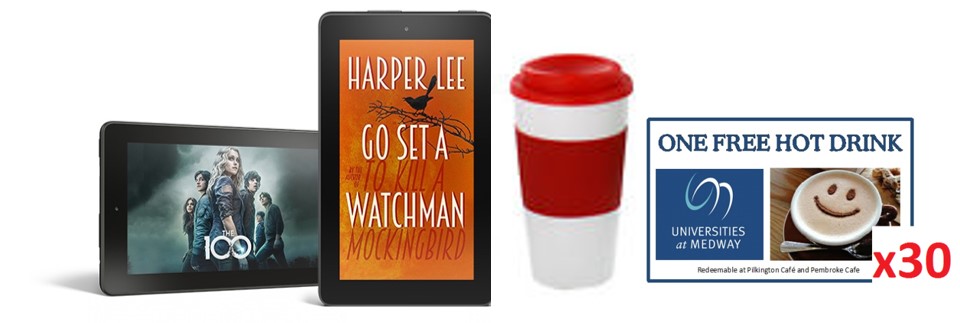
Second prize:
A university branded thermos flask and 15 free hot drinks tokens
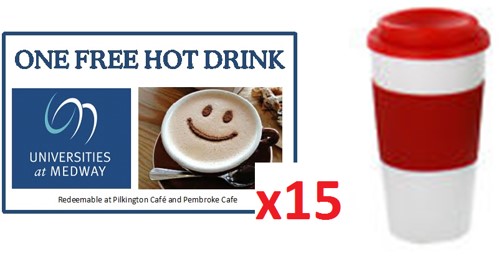
Third prize:
A university branded thermos flask and 5 free hot drinks tokens
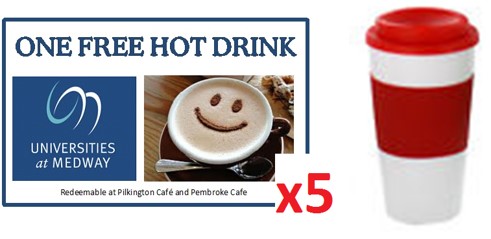
Week 6
Booking facilities and promotional posters
As the main crux of the work has now been completed, the focus has been put towards the marketing stall that will be in place on 15th and 16th December. I have been liaising with the Medway campus staff to book the area for the stall and spoken to the catering company to purchase 'keep cups' and the coffee tokens for the prizes. The purchase should go through next week, meaning everything is on track for the end of the project.
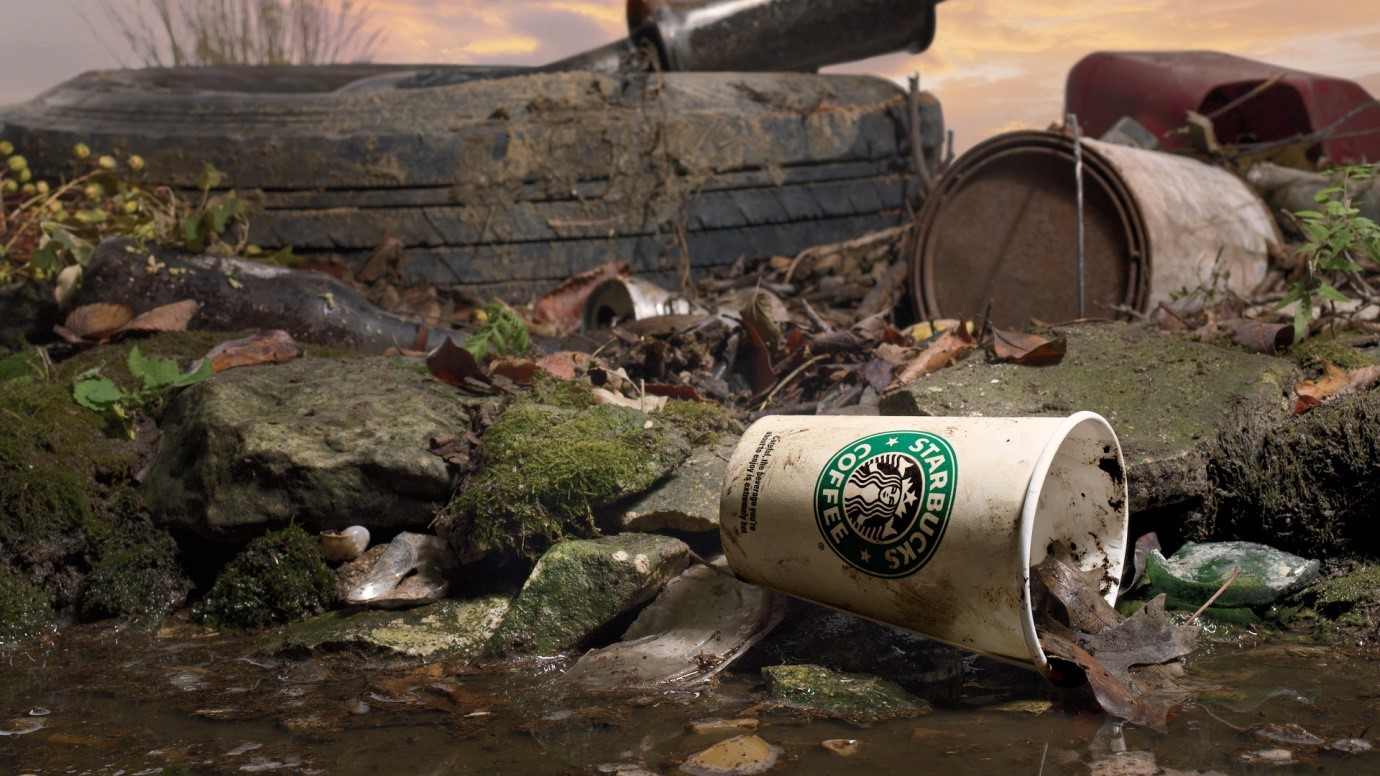
I have also been putting together promotional posters for the stall, to display the project ethos and the environmental gains that could come from this scheme to encourage individuals to think about how their habits can help towards reducing the national and global waste production.
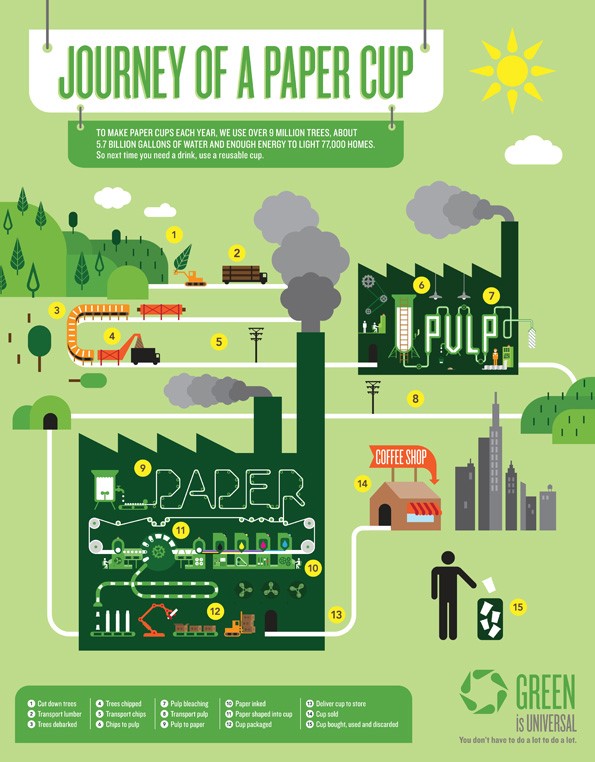
Week 7
Interviews and finalising the survey
This week a film crew from the university came down to capture a short interview on what the project is all about. We went around the campus looking for locations to shoot at and took some 'action shots' of the desired outcome. The film crew are in the process of editing the interview and hopefully the end result will be good!
The other main activity this week has been finalising the survey and getting that online. I am expecting the main survey completion to occur in the two days that the marketing stall is in place, however an online survey has been produced and will be included in the weekly societies round up email to try and reach a wider audience.
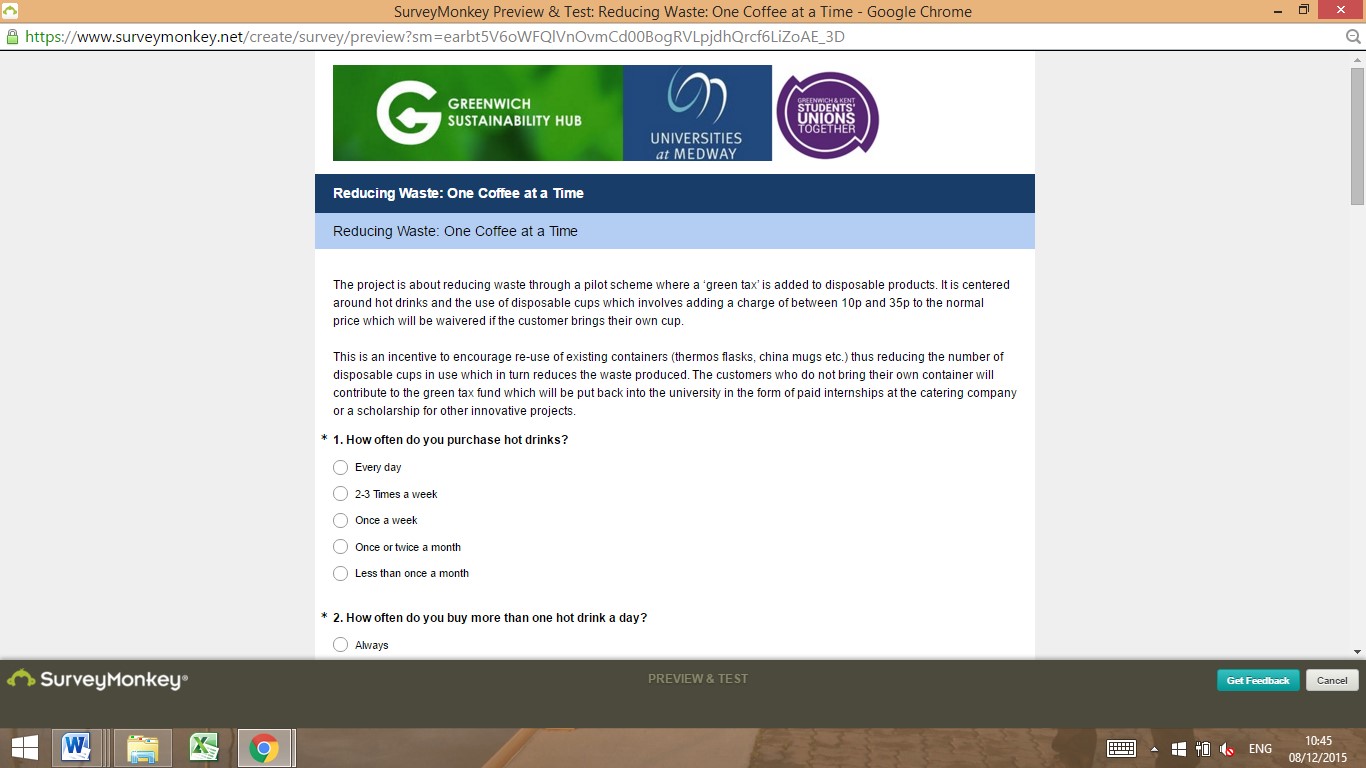
Week 8
Completing the project and plans after the project
So the end of the project has arrived, the report has been written and submitted! The findings from this project have been very interesting - with a direct relationship between a reduction in the percentage sales of paper cups and a reduction in mass going to waste disposal and carbon dioxide emissions. Looking at these results, a global ban on paper cups looks as if it would go some way to reducing the carbon dioxide deficit!
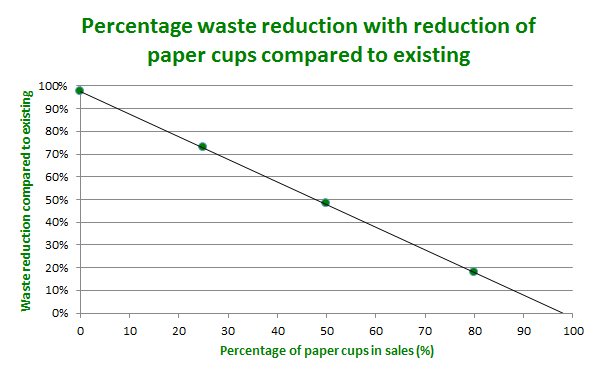
In the next few days following the official project completion the marketing stall will take place in Pilkington on the Medway Campus. Here I will be conducting the surveys, and hopefully communicating the benefits of re-usable cups to those present.
In the New Year it looks like the project will be displayed in an exhibition at the Crystal Building, which is a national centre for sustainability. This is a really exciting prospect, as it gives me an opportunity to display my project to the general public! All in all it has been an excellent experience, and one that I would definitely consider again in the future!